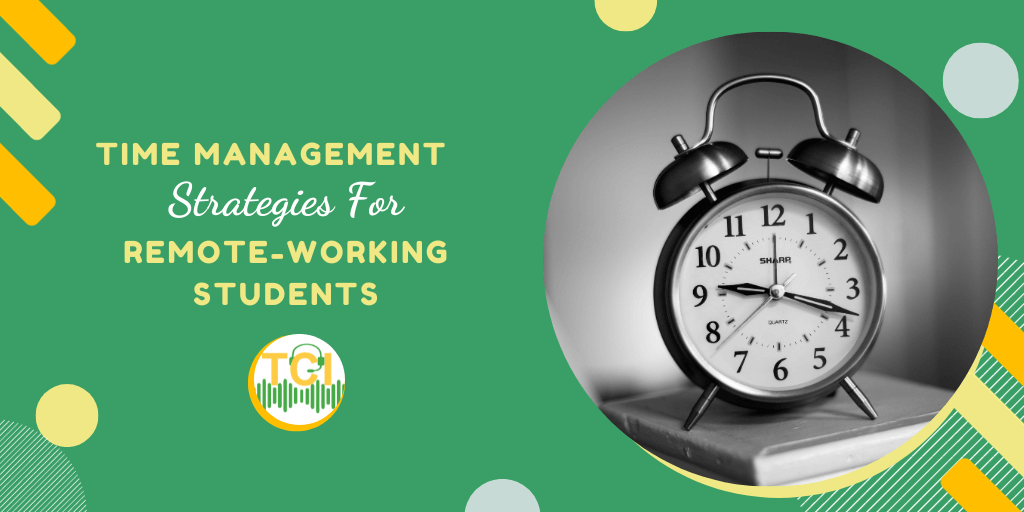
The digital age has brought with it an assortment of opportunities and challenges. With more students opting to work remotely while juggling academic responsibilities, time management has never been more critical. Some students even wonder if they should ask for help with an academic load and manage their time better. So, if you're facing this challenge, remember that there are expert essay writers at your service who can provide valuable assistance. However, it's possible to balance both worlds effectively with the right strategies.
Remote work offers flexibility but also presents unique hurdles, especially for students. Working from home can mean dealing with numerous distractions, including household chores, family members, or the lure of social media. When these interruptions overlap with academic responsibilities, it's a recipe for stress. Furthermore, without a clear distinction between study and work time, burnout lurks just around the corner.
To combat these challenges, demarcate specific zones in your home for work and study. This physical separation can prime you for the task at hand, be it a college assignment or a work project. Additionally, establish fixed hours for each activity. While a flexible schedule is tempting, designating time slots can enhance productivity. Remember, breaks are essential. Step away from your workspace, stretch, or take a short walk to rejuvenate.
In the bustling life of today, managing tasks effectively is paramount. Prioritizing ensures you focus on what truly matters, allowing you to use your time and energy more efficiently. Let's delve into some established prioritization techniques aiding individuals across various professions.
Often referred to as the Urgent-Important Matrix, this technique is attributed to the 34th President of the United States, Dwight D. Eisenhower. The method divides tasks into four categories:
This quadrant-based approach assists in quickly discerning which tasks require immediate attention, which can be scheduled, delegated, or removed entirely.
It is a more straightforward, hierarchical approach; tasks are categorized based on their importance:
The simplicity of the ABCD system means you can quickly assign a category to tasks, streamlining your to-do list effectively.
Developed by Francesco Cirillo in the late 1980s, this method uses a timer to break work into intervals, usually 25 minutes in length, separated by short breaks. These intervals are termed "pomodoros," the plural in English of the Italian word pomodoro (tomato). After about four pomodoros, a more extended break is taken. This technique enhances focus, reduces fatigue, and makes daunting tasks manageable by breaking them into smaller, more digestible chunks.
Harnessing the power of technology can further optimize your task management:
Digital tools like Trello, Asana, and Notion have transformed how we manage tasks. These apps allow users to list tasks, set deadlines, collaborate with teams, and monitor progress visually. Depending on your preference, you can view tasks as lists, boards, or even as part of a calendar.
Where does your time go? Tools like RescueTime, Toggl, and Clockify provide invaluable insights into how you spend your time, helping you identify time-drains and streamline your workflow. By understanding where your time is finished, you can make informed decisions on task prioritization and time allocation.
Calendars have long been a staple in task management. Digital iterations, such as Google Calendar or Apple's Calendar app, offer more than just date tracking. They allow event creation, reminders, color-coding, and even meeting integration. By scheduling tasks on your calendar and employing effective time management techniques, you create a visual representation of your day, week, or month, making it easier to allocate time effectively and avoid overcommitting.
Amidst work and study, remember to allocate time for yourself. Leisure, hobbies, or just downtime can significantly counteract burnout. Whether reading a book, pursuing a hobby, or simply relaxing, these moments of reprieve rejuvenate the mind and body, prepping you for upcoming challenges.
Setting tangible goals, both short-term and long-term, can serve as a motivational compass. Each accomplished task, no matter how minor, is a step forward. Celebrate these achievements. Maintaining a routine, while seemingly mundane, instills discipline and can make daunting tasks manageable.
Seeking Support and Community
You're not alone in this journey. Many online communities cater to students working remotely. Sharing your challenges and solutions with peers can provide fresh perspectives. Moreover, seeking mentorship can offer guidance, helping navigate the intricate balance of work and study.
Regularly Review and Adjust
Self-assessment is pivotal. Regularly review your strategies, identifying what's working and what's not. As your coursework evolves or work demands shift, adapt your methods. Flexibility, paired with a willingness to adjust, can make your routine more sustainable.
In the intricate dance between work and study, effective time management is your guiding star. With determination, the right strategies, and continuous adaptation, students can enjoy the fruits of both worlds, ensuring neither their academic nor professional aspirations are compromised.
Your TRANSCRIPTION CAREER CAPSULE to Help You BOOST Your Potential
Latest Industry News, Jobs, Tips and More..

Comments are closed